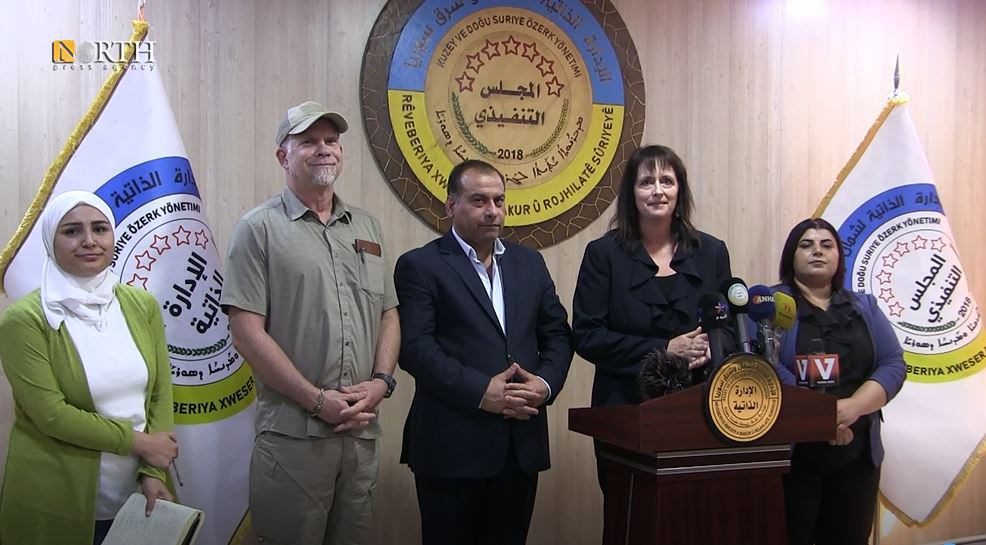US Commission on International Religious Freedom continues visit to Syria’s Kurdish-led areas
RAQQA, Syria, (North Press) – The United States Commission on International Religious Freedom (USCIRF) arrived in northeast Syria’s Raqqa on Wednesday, accompanied by a pastor from the Evangelical Church in Nashville, Tennessee, to hold a meeting with officials from the Autonomous Administration of North and East Syria (AANES).
“I was able to see for myself the devastation brought upon Christian villages near the area Turkey had invaded. I met with religious and community leaders and heard about the remarkable religious freedom conditions under the autonomous administration and how that is now nonexistent in the area that Turkey occupies,” USCIRF Vice Chair Nadine Maenza said earlier.
Siham Qerayo, the co-chair of the AANES General Council, said that the USCIRF’s visit is an expression of support for the area and the desire to understand the situation of the Christian minority in the region.
“The Commission will get positive impression during its visit to Raqqa city after witnessing the safety and stability in the area that was the self-declared capital of ISIS,” Qerayo expected.
Maenza expressed the commission’s support to AANES and its values, including religious freedom, gender equality, and human rights, during a press conference after the meeting in Raqqa.
Earlier, USCIRF said towns and villages in northeast Syria — including some that are traditionally home to Christians, Kurds, Yezidis, and Arabs — experience persistent Turkish and militant shelling and ethnic cleansing. It said badly needed humanitarian aid has also been cut off, especially amidst the coronavirus pandemic.
USCIRF has urged the US government to “exert significant pressure on Turkey” to set a strict timeline to withdraw from Syria, “while ensuring that neither its military nor its allies expand their area of control, carry out religious and ethnic cleansing or otherwise abuse the rights of vulnerable religious and ethnic minorities there.”
Additionally, it pressed the US to fund and develop programs that “promote religious tolerance and advance religious freedom and human rights” in the autonomous administration of Kurds and Christians governing the region and to exempt the area from US sanctions under the Caesar Act.

